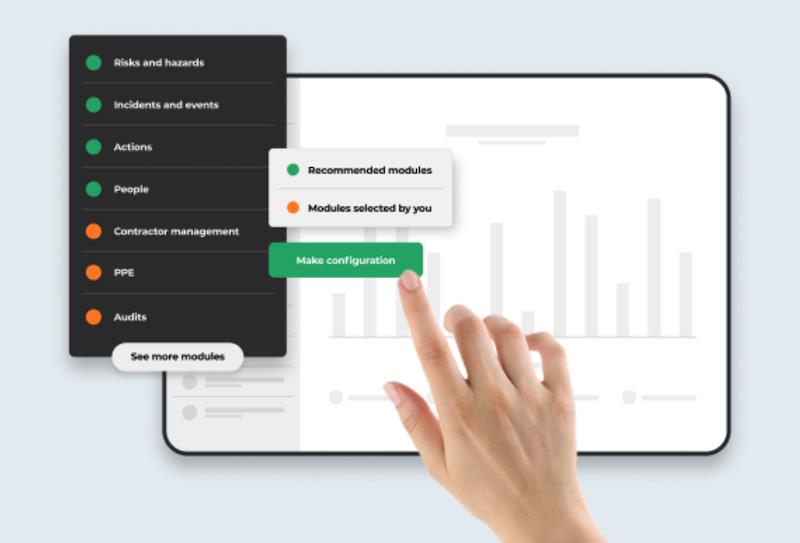
Enhancing Business Resilience Through Preventative Risk Management Tools Robotics & Automation News
In an era where business operations face numerous uncertainties – from cyber threats to workplace accidents – robust preventative risk management tools are more crucial than ever. These tools safeguard against potential disruptions and ensure that businesses can thrive in challenging environments.
Companies can proactively identify, assess, and mitigate dangers by integrating advanced software solutions into their risk management strategies. This proactive approach helps prevent risks from escalating into costly incidents.
Let's delve into how these tools, including WHS management system software , fortify business resilience and the benefits of employing professional services to maximise effectiveness. Such software solutions enhance the ability to track and manage workplace safety comprehensively.
Professional services ensure these systems are tailored to meet organisational needs, improving overall effectiveness. Together, they form a powerful combination that strengthens a company's defensive strategies against operational dangers.
Streamlined Risk Identification and AssessmentAutomated Risk Detection : These tools utilise advanced algorithms to continuously monitor and analyse many danger factors. This automation enables businesses to detect potential threats early, well before they can impact operations.
Comprehensive Risk Assessments : These tools provide frameworks and methodologies for conducting thorough assessments. By systematically evaluating the likelihood and potential impact of identified dangers, businesses can prioritise their mitigation efforts more effectively, ensuring that resources are placed where they are needed most.
Customisable Risk Parameters : Different industries face unique risks. It allows companies to customise parameters based on their specific operational needs and regulatory requirements. This customisation ensures that the management process is highly relevant and focused.
Enhanced Preventative Measures and Response StrategiesPreventative Action Plans : With clear insights into potential dangers, companies can develop and implement preventative measures to reduce the likelihood of adverse events. These plans often include training programs, safety protocols, and maintenance schedules that help prevent accidents and failures.
Quick Response Features : When events occur, preventative management tools can expedite the response process. Features like automated alerts, emergency notifications, and action-step guidelines help ensure swift and effective responses, minimising damage and recovery time.
Continuous Monitoring and Updates : It is an ongoing process. These tools offer constant monitoring and regular updates to assessments and response strategies, accommodating business environment or operations changes. This adaptability is crucial for maintaining long-term resilience.
Integration with Business Continuity PlanningAlignment with Business Objectives : It is aligned with the business's strategic objectives. Preventative tools integrate management with overall business continuity planning, ensuring that all preventive measures support broader business goals and sustainability.
Scenario Planning : Advanced tools help businesses prepare for multiple scenarios, including worst-case situations. This preparation is critical for developing robust business continuity plans to sustain operations under various conditions, enhancing overall business resilience.
Benefits of Hiring a Professional ServiceExpert Implementation : While preventative management software is powerful, its effectiveness depends significantly on proper implementation. Hiring a professional service ensures that the software is configured and deployed correctly according to the business's specific needs. Experts can help tailor the system to capture all relevant dangers and optimise all system capabilities.
Training and Support : Professional services often include comprehensive staff training to make sure they can effectively use the tools. Ongoing support and troubleshooting are also provided, helping businesses overcome operational challenges and ensuring the system remains functional and up-to-date.
Continuous Improvement : Professionals bring a wealth of experience and industry insights that can drive continuous improvement in management practices. They can supply guidance on the latest trends, technologies, and regulatory changes, ensuring that the business's management strategies remain cutting-edge and compliant.
Leveraging Data-Driven Insights for Strategic DecisionsInformed Decision-Making : One key advantage of utilising these tools is their ability to turn data into actionable insights. These tools gather and analyse data from various sources, providing businesses with comprehensive reports and dashboards highlighting potential risk areas. This information empowers people to make informed decisions about where to allocate resources and how to strategize their preventive measures effectively.
Predictive Analytics : Modern software often includes predictive analytics capabilities that use historical data to forecast possible risks. Companies can devise strategic responses that minimise potential disruptions by anticipating possible challenges.
Building a Culture of Safety and AwarenessEmployee Engagement : Implementing preventative risk management tools protects a business from physical risks and fosters a culture of safety and awareness among employees. When staff actively identify risks and suggest improvements, they are more likely to comply with safety protocols and contribute positively to the company's risk management efforts.
Safety as a Core Value : Over time, the continuous use of these tools integrates safety into the company's core values. This integration helps ensure that every decision and business process considers the safety and well-being of employees and the company's operational integrity. Making safety a foundational aspect of corporate culture enhances compliance and improves employee morale and trust.
In today's business landscape, enhancing resilience through preventative risk management tools, including WHS management system software, is not just a strategic benefit but a necessity.
As businesses navigate complex risks, investing in advanced risk management solutions and expert guidance will be vital in maintaining stability and thriving in adversity.
Legal Disclaimer:
MENAFN provides the
information “as is” without warranty of any kind. We do not accept
any responsibility or liability for the accuracy, content, images,
videos, licenses, completeness, legality, or reliability of the information
contained in this article. If you have any complaints or copyright
issues related to this article, kindly contact the provider above.


















Comments
No comment